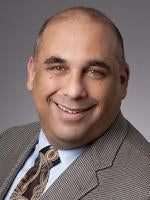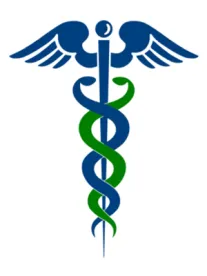Kindred Healthcare. On July 2, 2018, Humana Inc. and private equity firms TPG Capital (TPG), and Welsh, Carson, Anderson & Stowe (Welsh) (collectively referred to as the Consortium) issued a press release announcing the closure of their $4.1 billion joint acquisition of Kindred Healthcare, Inc. Kindred Healthcare, Inc. is a national owner/operator of long-term acute care hospitals, inpatient rehabilitation facilities, rehabilitation service providers and, through Kindred at Home (KAH), home health agencies, hospices, telehealth providers, and community care facilities.
As announced by the Consortium, Kindred Healthcare will be operated as a separate specialty hospital company owned jointly by TPG and Welsh. KAH will be operated as a standalone company owned by the Consortium – 40% by Humana, with the remaining 60% owned by TPG and Welsh. As a result of the transaction, Humana will have the right to buy the remaining KAH ownership interest over time through a put/call arrangement.
Curo Health Services. Before the printing presses were able to cool from the Kindred announcement, a July 11, 2018 press release was issued to announce the closure of the Consortium’s $1.4 billion joint acquisition of Curo Health Services,[1] a national provider of hospice services that operates 245 locations in 22 states. As was the case with the KAH acquisition, Curo Health Services is now owned by the Consortium which is, once again, owned by Humana (40%) and the private equity firms (collectively, 60%).
Largest Hospice Provider. As part of the Curo Health Services announcement, the Consortium stated that it will combine Curo Health Services with KAH to be operated under the name, “Kindred at Home.” As a result of the acquisitions and combination, KAH will be the nation’s largest hospice operator.
Humana’s Strategy. During Humana’s 2018 First Quarter Earnings Call on May 2, 2018, Bruce Broussard, Humana Chief Executive Officer, detailed how Humana will use its acquisition of KAH to reduce health care costs for Humana members.
One benefit of the Kindred at Home transaction structure that it allows us to focus on advancing our care models and associated impact on lowering the cost of care.
We are beginning to develop new clinical models, moving from reactive, point-in-time, triggered-based models of post-acute intervention to proactive, always-on models that leverage moments of influence for our members, including through Kindred at Home’s care delivery capabilities. They are focused on in-home clinical and tele-health capabilities, including condition-specific best practices and robust clinical pathways.
We can improve the quality of care by using data analytics to predict when a member is at risk for an acute event and using that data to arm the physician and in-home clinicians with comprehensive view of the member.
As a result, we believe we can prevent an unnecessary hospital admission or an emergency room visit. We are creating test-and-learn pilots for a subset of Humana members in certain markets that we plan to launch when the transaction closes.
Some of the initiatives we are assessing include, improving the time to start of home healthcare by reduced administrative and other barriers, improving communication with the primary care physician, and seamless medication reconciliation and access to Humana pharmacists as well as other Humana resources and community support.
Although Mr. Broussard specifically focused the above comments on Humana’s acquisition of a 40% interest in KAH, the comments equally apply to the acquisition of Curo Health Services.
[1] In our May 30, 2018, Healthcare Law Blog article, “The Shape of Healthcare: Blockbuster Mergers, Retail Healthcare, and Marcus Welby, M.D,” we reported that the consortium was moving forward on their joint $1.4 billion acquisition of Curo Health Services.



 />i
/>i

